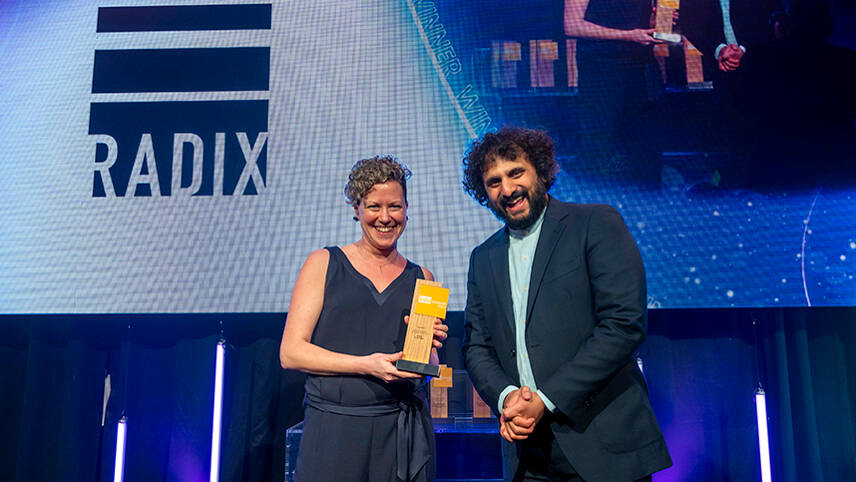This premium content is exclusive to edie Members.
To find out more about edie Membership, please click below.
If you are an existing member, login here

At a glance:
Who: RADIX Group
What: An innovative, low-carbon alternative to concrete foundations
Where: HQ is in Dundee, Scotland
When: RADIX launched in 2019
Why: Reduce environmental impacts of building materials and construction processes
The Challenge:
Cement and concrete account for some 7% of the world’s emissions each year, with the sector’s absolute emissions having doubled over the past 20 years by some estimates. The sector is considered hard to abate with no single drop-in solution available commercially to align its path with net-zero.
This presents a challenge to building and infrastructure developers seeking to cut embodied carbon. Developers are also seeking next-generation products and processes to minimise the impact of their projects on the natural environment and local communities.
The Solution:
Screw piles can replace concrete foundations on a range of construction projects, reducing embodied carbon and project delivery times. Moreover, as no extensive excavation work is needed, screw pile use can minimise negative impacts on the surrounding soil and nature.
They are already widely used in Nordic countries to support timber-frame buildings. RADIX innovated to develop a next-generation of screw piles capable of supporting heavier buildings and suitable for installations across a range of different terrains, thus making the technology more appealing in the UK market. The screw piles are less than eight centimetres wide.
How it works:
Properly installed, screw piles can be as effective and long-lasting as pile foundations. Installing metal screw piles as an alternative to poured concrete foundations mitigates the need for earth excavation, soil removal, formwork and work with hot concrete. As such, it cuts down on vehicle movements, project delivery timeframes and disruption to the local environment and community.
Another benefit is that screw piles can be applied in some locations unsuitable for concrete, such as water-logged fields or hilly scenic locations.
RADIX has used its screw piles to lay the foundations for a range of projects across the UK, from residential buildings to commercial properties, log cabins, pedestrian bridges, solar farms and battery storage arrays.
RADIX claims its screw piles can have a working lifespan of 75 years or more. They can be removed as swiftly as they were installed, with the firm touting no long-term damage to the area.
The results:
The innovative screw piles deliver embodied carbon reductions of more than 50%, compared with traditional concrete alternatives. This is partly due to material efficiencies and partly due to a decreased need for transport.
Real-world uses of the screw piles have resulted in shorter delivery timeframes for projects, with reductions of up to 60% recorded.
Radix has posted “very little disruption” to surrounding biodiversity and business operations when installing screw piles, given that they mitigate the need for extensive excavation and that they can be installed using more agile machinery.
Radix has ambitions to take its product to market in the EU and USA while also growing its UK operations and further optimising its products.
The Judges said: “We felt that this product offers a great alternative to concrete piles, reducing embedded carbon and the impact on the surrounding environment.”
© Faversham House Ltd 2024 edie news articles may be copied or forwarded for individual use only. No other reproduction or distribution is permitted without prior written consent.

